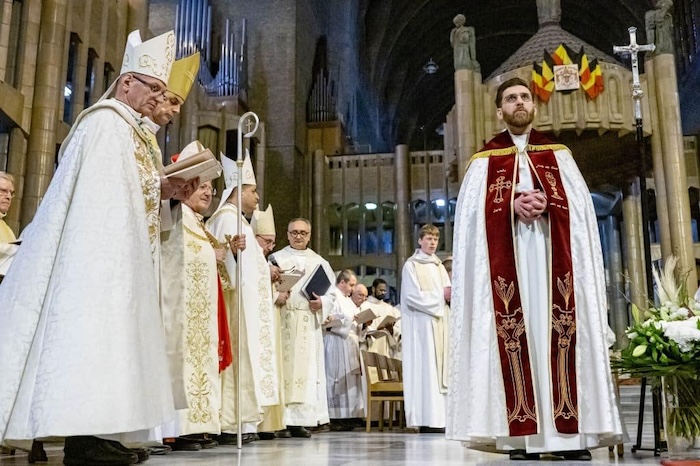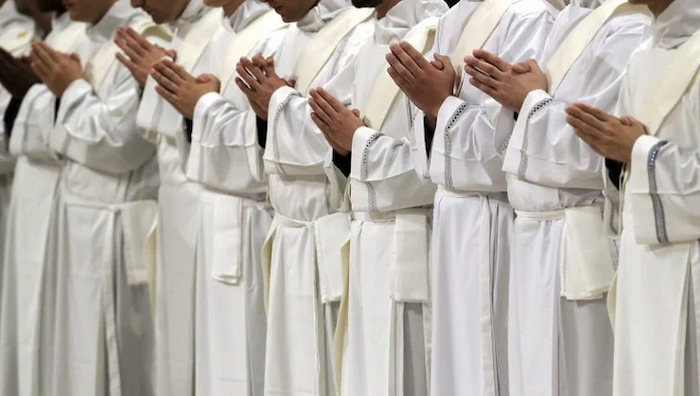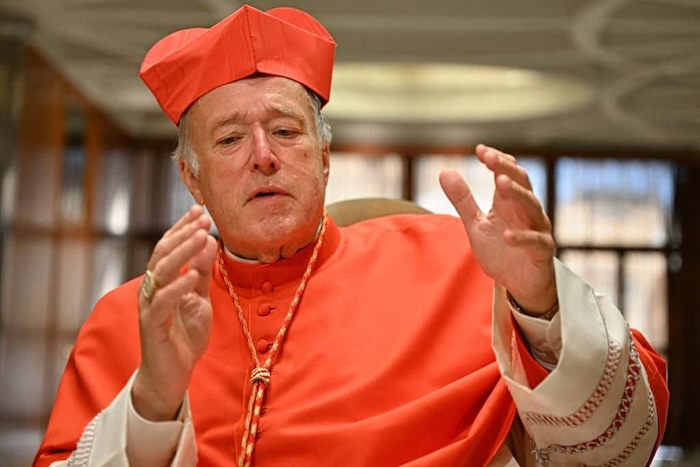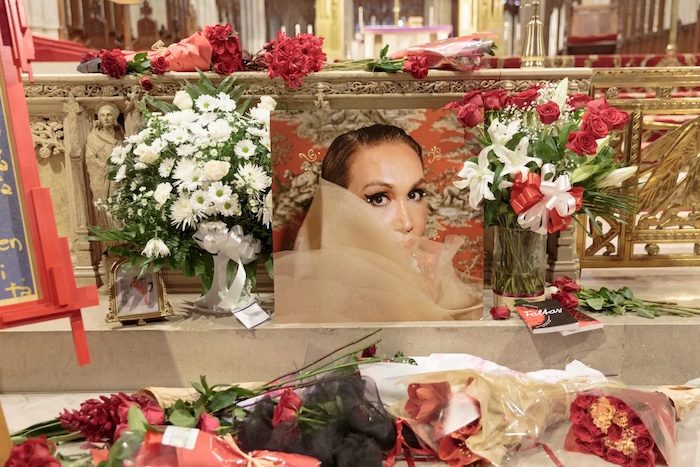— Mirjiam Kovac and Gloria Branciani want independent inquiry into Marko Rupnik, who was expelled from Jesuit order in 2023
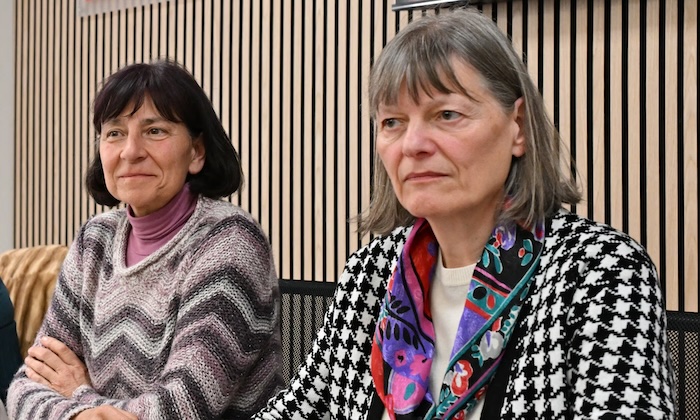
Two former nuns have called on Pope Francis to initiate an independent investigation into a once-prominent Jesuit artist-priest who they allege sexually abused them, including by forcing them to have threesomes and making them watch pornography so they would “grow spiritually”.
Speaking publicly for the first time, Mirjiam Kovac and Gloria Branciani said the wall of silence surrounding Marko Rupnik, who has been accused by several women of sexual, psychological and spiritual abuses dating back three decades, had finally “crumbled”.
The women are former members of the Ignatius of Loyola community, an order co-founded by Rupnik, whose mosaics adorn the walls of some Vatican chapels and other churches.
“We were all young girls, full of ideals,” Kovac said during a press conference in Rome. “But these very ideals, together with our training in obedience, were exploited for abuses of various kinds: of conscience, of power, spiritual, psychic, physical and often sexual.”
Both women reported Rupnik to senior Catholic church officials in the early 1990s, but claim they were repeatedly rebuffed and dismissed.
Rupnik was excommunicated in 2020 for absolving a woman with whom he had sex; the absolution of a “sexual accomplice” is among the most serious crimes under canon law. But he was reinstated two weeks later after he repented.
In 2022, allegations against Rupnik made by nine women were dismissed by the Dicastery for the Doctrine of the Faith (DDF), citing the canonical statute of limitations.
It was only later that year, after it was reported in the press that Rupnik had been treated with “kid gloves” by the church, that the Jesuits issued a public call for victims to come forward. Rupnik was finally expelled from the order in June 2023 after the “degree of credibility” of the allegations against him was found to be “very high”.
Rupnik, however, remains a priest and was accepted into a diocese in Koper, in his native Slovenia, in October 2023. That same month, Pope Francis ordered the DDF to reopen the case, although Laura Sgrò, a lawyer representing Kovac and Branciani, said she had received no information relating to the new investigation.
Branciani alleged on Wednesday that she and another nun were forced to have a threesome with Rupnik “because he said it was like the [Holy] Trinity”.
The incident allegedly occurred in the home of a friend of Rupnik in Gorizia, a city in northern Italy. “The most terrible aspect of this threesome was that afterwards, we never spoke to each other about it,” she said. “We were both completely blocked … I was very tired, I felt empty and could no longer feel feelings of any kind other than a deep pain and sense of failure.”
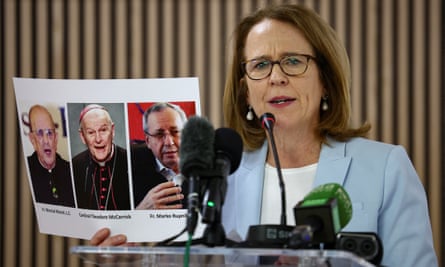
Branciani also alleged to journalists that Rupnik forced her to watch pornography “to help me ‘grow spiritually’”.
Rupnik has not publicly commented on the accusations. The Guardian did not receive a response to an email sent to the Aletti Centre, a religious art centre in Rome founded by Rupnik with which he is still associated. Maria Campatelli, the director of the Aletti Centre, said last year that the accusations were “defamatory and unproven”.
The Koper diocese said it was unable to provide a statement on Wednesday, and referred to one made in October last year which said: “So long as Rupnik is not found guilty in a court of law, he enjoys all the rights and duties of a diocesan priest.”
A Holy See spokesperson, Matteo Bruni, told journalists the Vatican was gathering “all available information on the case” to “determine which procedures it would be possible and useful to implement”.
In February 2019, Francis became the first pontiff to publicly admit that priests had sexually abused nuns and pledged to do more to fight the problem.
Anne Barrett Doyle, a co-founder of BishopAccountability, which tracks alleged clergy sexual abuse cases, said the church’s “secret” handling of the allegations against Rupnik bore all the earmarks of “an old-time cover-up”, similar to that of Theodore McCarrick, a former archbishop whom the Vatican defrocked in 2019 after finding him guilty of sexually abusing children.
“This case represents not only the church’s continued protection of powerful abusers, but its particular indifference to the sexual abuse of adult women,” said Doyle. “The pope made abuse of vulnerable adults a church crime, but we see little evidence that the new rule has made a difference.”
It is rare for nuns to speak publicly about alleged abuse by priests, an issue that has blighted the Catholic church for decades. There is also scant care for abused nuns, many of whom have been thrown out of their orders and made homeless. Some have claimed to have become pregnant by priests and then forced to have abortions.
Complete Article ↪HERE↩!

